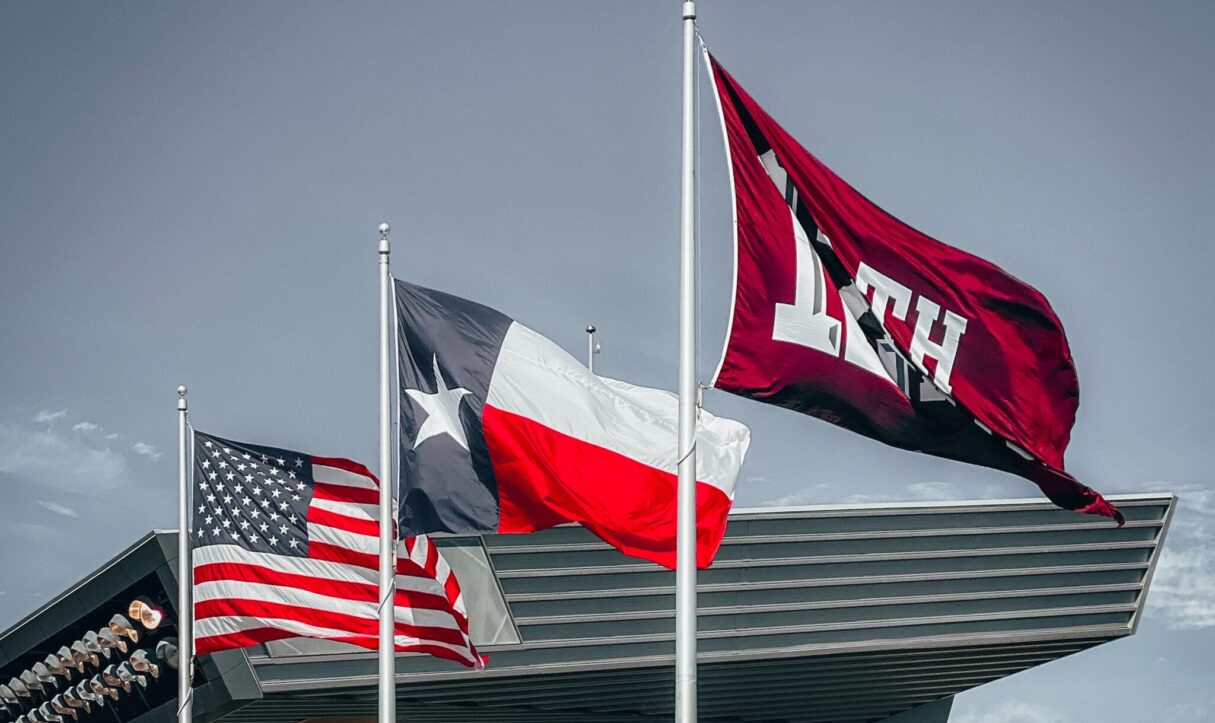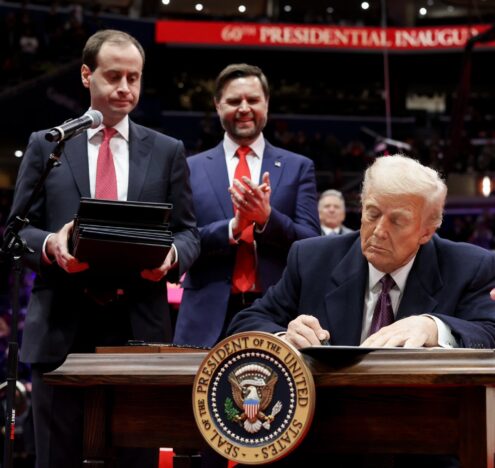Every year, the US government passes appropriations bills to allot money to federal programs. Among these allotments, the bloated defense budget often gets an annual increase. As lawmakers are currently in the process of debating and amending this budget, institutional investors, such as the University of Texas and Texas A&M Investment Management Company (UTIMCO) put some of their stocks and bonds into weapons manufacturing companies and defense contractors. This practice upholds the status quo of prolific US defense spending and co-opts the values and principles of institutions of higher education.
Stakeholders of the UT and A&M Systems, including students, alumni, faculty, and staff, are unknowingly financially contributing to the systemic militarism that is turned against our own citizens and exported to fuel wars abroad. UTIMCO’s divestment from weapons manufacturers is necessary to begin bringing its portfolio into alignment with its stated values and goals, and to prevent further endorsement, both financial and moral, of the military-industrial complex.
A Misalignment of Values
According to their website, “UTIMCO is a not-for-profit corporation modeled after investment management companies organized by Harvard, Princeton, Stanford, and Duke Universities to invest their respective assets. It was the first investment corporation formed by a public university system, and is governed by a nine-member board.” Their investment strategy aims to “provide increasing levels of purchasing power for scholarships, teaching, research and other educational programs of The University of Texas and The Texas A&M University Systems.”
Many alumni and students at other universities also want their universities’ funds removed from the military-industrial complex and the defense contractors whose weapons fuel wars abroad and whose corrosive political influence fuels inequality at home. And many of the world’s most profitable funds have begun to establish a new normal by divesting from weapons manufacturers.
However, members of the UT community are concerned with the extent to which UTIMCO invests in weapons manufacturers. These corporations include but are not limited to: Lockheed Martin, Boeing, Northrop Grumman, Raytheon, and BAE Systems, all of which have been subjects of significant international controversy and condemnation for their complicity in violations of international human rights law and the proliferation of their products in conflict-affected areas. As of August 2022, the UTIMCO Permanent University Fund, which operates off of income from oil and gas drilling, mineral mining, and grazing, contains nearly $35 million worth of debt and equity securities invested in 13 different major weapons manufacturers. In 2021, this number was about $63 million.
By investing in the military-industrial complex, UTIMCO enables the profit model of humanitarian crisis and directly contradicts its stated purposes of “[eradicating] poverty” and “[advancing] society.” UTIMCO’s investments have wide-reaching impacts: not only setting expectations for future investors and the investing landscape but also enabling weapons and weapon systems manufacturers to profit from the destruction of human life and livelihoods.
In the summer of 2020, Women for Weapons Trade Transparency launched a campaign to demand that UTIMCO divest from weapons manufacturers. We successfully passed a joint resolution through the UT Student Government, Senate of College Councils, and Graduate Student Assembly, and garnered over 200 student, alumni, parent, and faculty supporters and allies of this campaign. Our detailed report found that, by investing in weapons manufacturers, not only does UTIMCO use its power as an institutional investor to uphold norms of militarism (and thus exposes itself to reputational and legal risks), but it also opens itself to financial risks as a result of weapons manufacturers’ lackluster market performance.
Trying to Stop the Enabling of the Military-Industrial Complex
On May 25, 2023, we met with UTIMCO staff at their office in Austin, Texas to discuss our asks for divestment. While it was an informative meeting, none of our asks were ultimately agreed to under the premise that the Permanent University Fund Investment Policy prohibits investing “to achieve temporal benefits for any purpose including use of its economic power to advance social or political purposes.” While our organization does not deny that our asks have underlying so-called “political” motivations, we also argue that every investment that UTIMCO makes is inherently political in nature, as each investment is a numbers-driven financial decision but also a meaningful investment in an industry, country, or corporation. In other words, UTIMCO’s investments in weapons manufacturers are already political.
This issue is particularly salient given the recent end of the 88th Texas legislative session, in which a bill was passed that added Stephen F. Austin State University to the UT System. SB 1055 means that Stephen F. Austin is now eligible for participation in the Permanent University Fund “to the same extent as similar component institutions of The University of Texas System.” While UTIMCO is already the largest public university endowment in the country, the addition of another university’s funds to its portfolio only increases its political power to establish standards surrounding university investments.
Many alumni and students at other universities also want their universities’ funds removed from the military-industrial complex and the defense contractors whose weapons fuel wars abroad and whose corrosive political influence fuels inequality at home. And many of the world’s most profitable funds have begun to establish a new normal by divesting from weapons manufacturers. For example, Norway’s Government Pension Fund, one of the largest funds in the world, excludes companies from their investments that “produce weapons that violate fundamental humanitarian principles through their normal use.” The fund also prohibits investments in companies that contribute to or are responsible for “serious violations of the rights of individuals in situations of war or conflict.” The fund has excluded Boeing Co, Lockheed Martin Corp, Northrop Grumman Corp, Airbus SE, Honeywell International Inc, Safran SA, and Hanwha Corp from its investments due to their production of controversial weapons systems. UTIMCO currently invests in all of these companies.
The United States is the world’s largest arms exporter, and UTIMCO divesting from weapons manufacturers will, of course, not end the atrocities and human rights violations occurring as a result of weapons proliferation and misuse. But the consistent tragedy and loss of life as a result of weaponry from these companies, including bombs, missiles, aircraft, and even services like military training and “training and technical assistance” for child detention centers has proven a need for UTIMCO to incorporate more ethical oversight into its investment portfolio.
UTIMCO’s divestment would begin to establish precedent and new norms for institutional investors, communicating that students, staff, and alumni reject warmongering for profit — in Texas, throughout the United States, and across the globe.




















